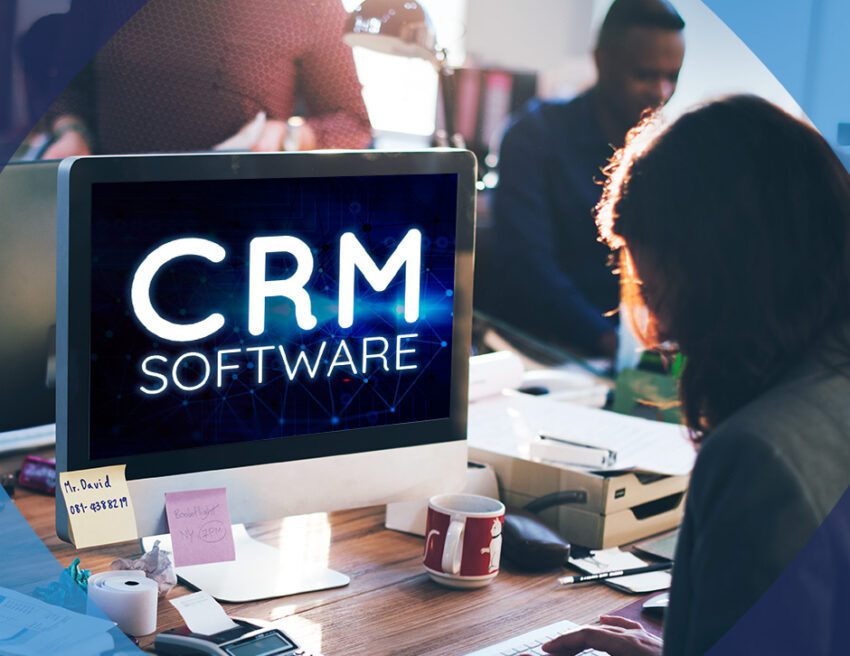The primary objective for all small and mid-sized logistics companies is business expansion. This growth entails acquiring new customers, hiring additional employees, establishing branch offices, and ultimately increasing revenue. However, attracting more customers and enhancing the company’s profitability requires strategic investment in key areas. With the rise of digital freight forwarders, the logistics companies are increasingly recognizing the benefits of digital platforms such as Transport Management Software (TMS), Customer Relationship Management (CRM), Warehouse Management Systems (WMS), Route Optimization Software, Shipment Tracking Software, and more.
In this blog, we will discuss the utilities of CRM software and talk about some of the best CRMs for small businesses that will help independent freight forwarders like you to transition into digital freight forwarders.

CRM software that could help you become digital freight forwarders
-
Hubspot
HubSpot offers both a paid version and a completely free version of its CRM software. Freight forwarding companies without prior experience in CRM software can begin with HubSpot’s free CRM platform, which enables you to monitor company activities, track deals, assign tasks, manage data efficiently, and enhance sales efforts. Additionally, this platform can be seamlessly integrated with other popular platforms such as Shopify, Microsoft Dynamics, or Salesforce.
-
Zoho
Zoho’s pipeline-oriented CRM platform is one of the most affordable options on the market, starting at just $7 USD per user per month. Unlike other CRMs, it focuses on essential features that small and medium-sized businesses (SMBs) actually use, making it minimalist and intuitive. This software includes built-in phone and email capabilities, workflow automation, and a customizable dashboard for tracking key business metrics. It offers multiple pipelines, allowing you to personalize each stage for specific targets. Additionally, it seamlessly integrates with a wide range of platforms including Google Workspace, Mailchimp, Microsoft Office 365, and other Zoho apps.
-
Freshsales
This comprehensive customer relationship automation software is designed to significantly streamline your sales team’s tasks. Freshsales empowers you to attract high-quality leads, engage in meaningful communications, leverage AI-driven insights to close deals, and nurture client relationships effectively. Moreover, its integrated email, chat, and phone features digitize the entire sales process, enhancing productivity across your daily activities.
-
Salesforce
This CRM software is highly popular among small and medium-sized businesses (SMBs). If you’re considering trying out a CRM for the first time, this is a valuable and affordable option. Furthermore, Salesforce offers a basic version of this platform called Lightning Essentials, which includes several fundamental features along with customization and integration options.
-
Keap
Keap is a comprehensive CRM designed for small business owners, offering integrated tools for following up with customers and leads, scheduling appointments, facilitating seamless payments, creating landing pages, and more. They emphasize that the key to SMB growth lies in maintaining strong connections with existing and potential customers, a goal that Keap helps achieve with precision.
-
Less annoying CRM
LACRM is a robust fixed-price CRM package that includes a range of features such as sending follow-ups, managing contact lists, tracking leads, and task management. Additionally, it provides an intuitive toolkit to manage leads, track their progress through pipelines, and stay updated on tasks and events efficiently.
What to consider before choosing a CRM
-
Usability
For small freight forwarding companies with limited experience in complex digital tools, it’s advisable to avoid platforms that require extensive training and take days to master. Usability and convenience are crucial factors when selecting a CRM. It’s important to choose a platform that is easy to use, requires minimal training, and offers seamless data exchange and accessibility. This ensures that your team can quickly adopt and benefit from the CRM without significant learning curves or delays in implementation.
-
Flexibility in customization
As an independent freight forwarder, selecting a CRM with robust customization features is essential to tailor the software to your specific business needs. The operational methods of small logistics companies often differ significantly from larger players in the industry. Therefore, having the ability to customize your digital tools is crucial for optimizing workflows and addressing unique business challenges efficiently. Look for a CRM that offers flexibility in customization, allowing you to adapt processes and features according to your requirements and operational style.
-
Cost effectiveness
Consider the cost of the platform. It’s advisable to utilize free trial versions of several CRMs to assess their suitability before making a purchase. This allows you to evaluate the features, usability, and value offered by each CRM before committing financially.
-
Automation of repetitive tasks
Look for a CRM that includes automation features for repetitive tasks such as data updating, entry, client emails, and follow-ups. Automation can significantly save time and streamline operations for small businesses.
-
Great customer support
Given the absence of a specialized IT team, opt for a CRM that offers excellent customer support. Look for a provider that offers easy solutions to any issues you encounter and provides online and in-person demonstrations of the platform. They should also be responsive to calls and emails for timely assistance.
By prioritizing these factors—strong customer support, automation capabilities, and cost-effectiveness—you can select a CRM that enhances efficiency and supports the unique needs of your small logistics business.


